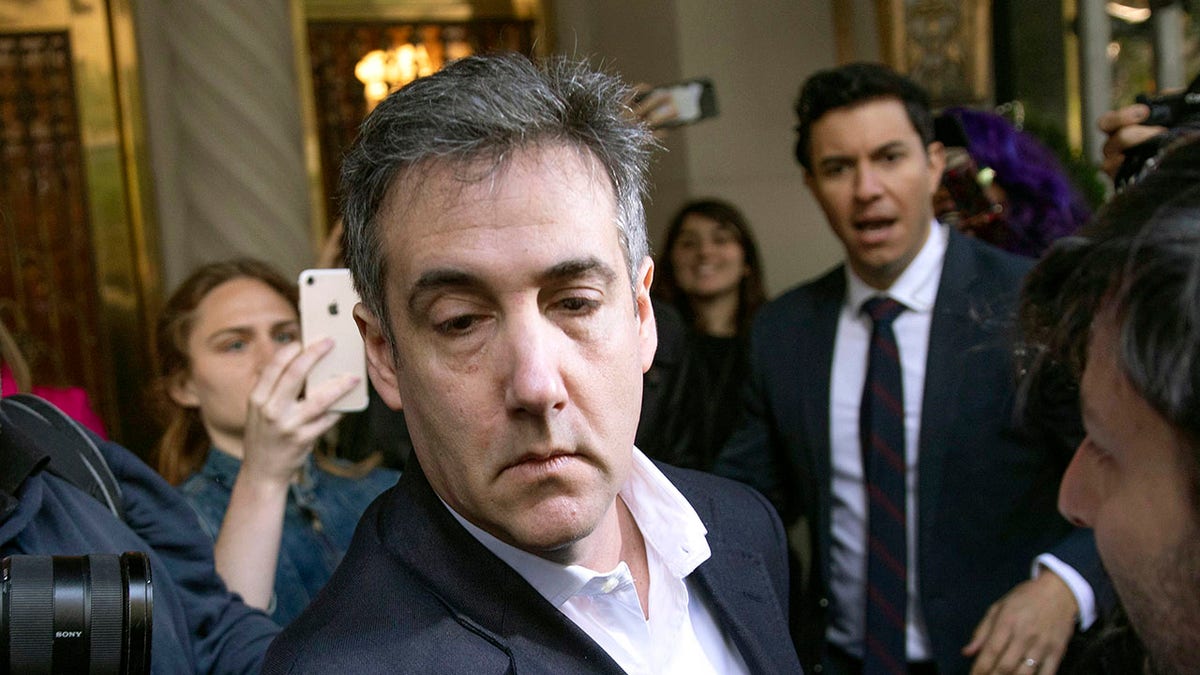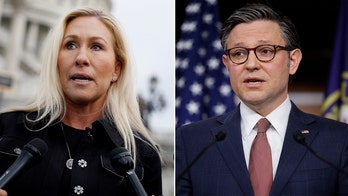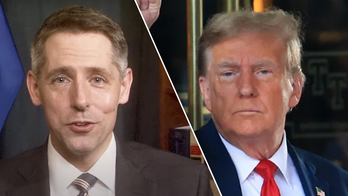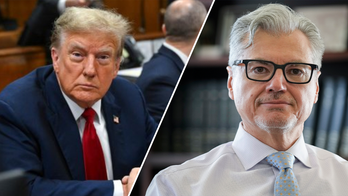Fox News Flash top headlines for September 8
Fox News Flash top headlines are here. Check out what's clicking on Foxnews.com.
Former lawyer to President Trump Michael Cohen in a book released Tuesday slams the president's character over hundreds of pages detailing the inner-workings of the Trump organization and campaign -- but says that narratives the president's campaign colluded with Russia in 2016 and that the unverified "Steele dossier" is true are wrong.
Cohen, after for years being a fixer for Trump, had a falling out with him in recent years and now calls Trump a "cult leader." In his book, titled "Disloyal," Cohen calls Trump "a cheat, a liar, a fraud, a bully, a racist, a predator, a con man," and "amoral."
In response, White House Press Secretary Kayleigh McEnany said in a Saturday statement reported by the Washington Post that Cohen "is a disgraced felon, and disbarred lawyer, who has lied to Congress" and that Cohen "has lost all credibility" and is trying "to profit off lies" with the book.

In this May 6, 2019, file photo, Michael Cohen, former attorney to President Donald Trump, leaves his apartment building before beginning his prison term in New York. Cohen is now serving his sentence at home, and released a tell-all book about his time as Trump's lawyer on Tuesday. (AP Photo/Kevin Hagen, File)
PETER STRZOK CLAIMS IG HOROWITZ CHANGED REPORT ON CLINTON EMAIL PROBE AT LAST SECOND
But on two major allegations that have dogged Trump for most of his presidency -- that his campaign allegedly colluded with Russia to win the election and the salacious details of the Steele Dossier -- Cohen pushes back on the worst of the accusations against the president, even in a way that is still damning against Trump.
"We all knew a project on the scale proposed would have to be approved by Putin," Cohen said of efforts by Trump to build a Trump Tower in Moscow. "I knew that was partly why Trump was praising the Russian president to the heavens -- as a way of insinuating himself with the strongman. That was the true nature of the 'collusion' with Russia. By ingratiating himself with Putin, and hinting at changes in American sanctions policy against the country under a Trump presidency, the Boss was trying to nudge the Moscow Trump Tower project along."
Cohen added: "The campaign was far too chaotic and incompetent to actually conspire with the Russian government. The reality was that Trump saw politics as an opportunity to make money, and he had no hesitation in bending American foreign policy to his personal benefit."
The former Trump fixer also re-upped his denials of the allegations in the Steele dossier, particularly that he had traveled to Prague as part of some sort of Russian collusion-related plot.
"[L]et me clarify once and for all questions about my travels to Europe during the 2016 campaign, and in the years before. First, I have never been to Prague. Never, ever, not once," Cohen said, while noting he had been to Ukraine in 2002 in while his brother pursued a non-political business opportunity. "I also traveled to Zurich around the same time in 2002, as I told a New York Times journalist, Megan Twohey, when they Russia story blew up and Christopher Steele's dossier was published in the weeks after the elections. Despite protestations to the editor-in-chief, the story was wrongly reported as an admission that I went to Prague."
WHITE HOUSE: MICHAEL COHEN TRYING TO PROFIT FROM 'LIES' WITH DISPARAGING TELL-ALL BOOK
Cohen addresses the Steele dossier again later in the book.
"As I scanned the pages, I was astounded to see my name repeated again and again, as if I were some demented, evil mastermind secretly and mostly single-handedly brokering the worst case of treason in the history of the United States," Cohen said of the first time he read the Steele dossier. "I had supposedly clandestinely traveled to Prague to meet with Russian officials aiming to intervene in the 2016 election on behalf of Trump, a story so ridiculous I couldn't believe what I was seeing with my own two eyes -- and remember, I not only had seen news I knew to be fake, I'd also manufactured it."
Cohen again says he'd never been to Prague, and also says, recounting a conversation with a Wall Street Journal reporter, that he denied a number of other allegations made against him in the report, including that he had "a dacha in Sochi;" that his father-in-law had a "best-friend relationship with Putin;" allegations about his connections to Paul Manafort and more.
"I thought it was a joke, it had to be a joke -- the karmic reply to the bulls--- about Ted Cruz's father being involved in the assassination of JFK," Cohen wrote, referencing an allegation Trump had lobbed at his former primary rival. "...I went from a loud and brash advocate for Donald Trump on cable television, to Public Enemy Number One because of the horses--- report of some washed up former MI-6 intelligence operative in England who I knew didn't have his facts straight. Not a single one!"
CLICK HERE TO GET THE FOX NEWS APP
Cohen detailed how he proved to Trump and his political advisors that he had not gone to Prague -- he showed his passport to Jared Kushner, Steve Bannon, Hope Hicks, Reince Priebus and Trump.
Cohen is not the only person with a book released Tuesday who criticized the credibility of the Steele dossier. Former FBI agent Peter Strzok, who released his tell-all about his time investigating Trump and as a subject of the president's ire on Tuesday, said to The Atlantic last week that the Steele dossier sent the FBI "on a series of wild-goose chases" and that "[s]ome of it is bulls---, and some of it is rumor, and some of it is disinformation."
Cohen's book, of course, spends the balance of its time detailing Trump's alleged misdeeds, which Cohen helped with. Cohen writes in the book that he conspired with National Enquirer publisher David Pecker to publish a false story about Cruz's dad being connected to JFK assassin Lee Harvey Oswald.
After Pecker emailed Cohen a PDF file of the story that would eventually run in the Enquirer, Cohen said he showed Trump the story. The future president reacted by calling Pecker and "laughing and joking about what a great story it would be," Cohen said. Cohen called the story "deadly poison injected into the body politic."






